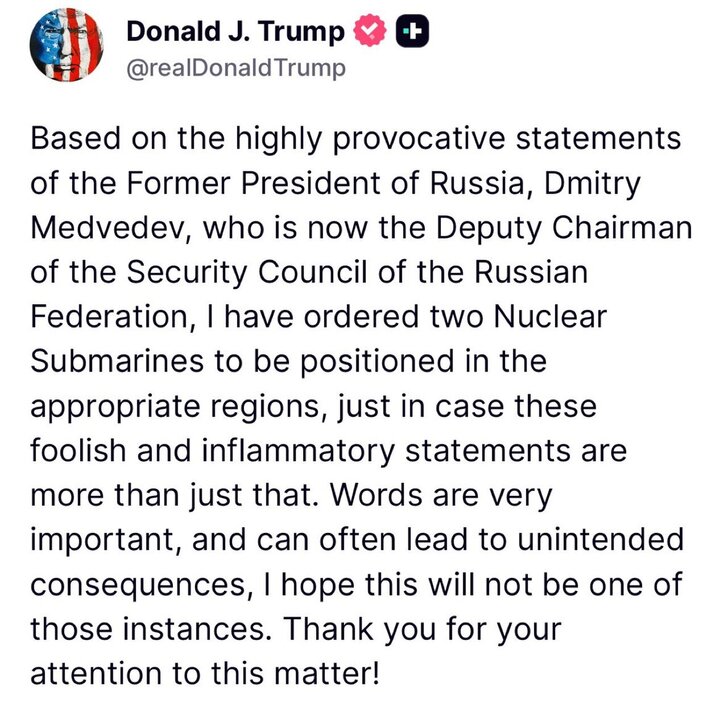


Gaines pointed to leadership challenges and outdated training strategies as contributing factors, warning that without structural reform, the U.S. program risks falling behind its global competitors.
His remarks come amid growing scrutiny from both athletes and supporters demanding accountability.

In the widely viewed video, the influencer offers a candid comparison of the seating, service, and in-flight amenities, giving millions of viewers an inside look at one of the world’s top-rated airlines.
The campaign highlights the carrier’s continued emphasis on luxury and innovation.

Educators and parents hope the expansion will improve student outcomes and reduce learning gaps, particularly in elementary grades.
Early pilot programs have shown promising results, prompting statewide interest in full-scale implementation.

The piece explores social norms, housing expenses, and cultural nuances that often escape tourist brochures, offering a grounded perspective for those considering relocating to the Southeast Asian hub.
The firsthand narrative has resonated widely with readers seeking authenticity.
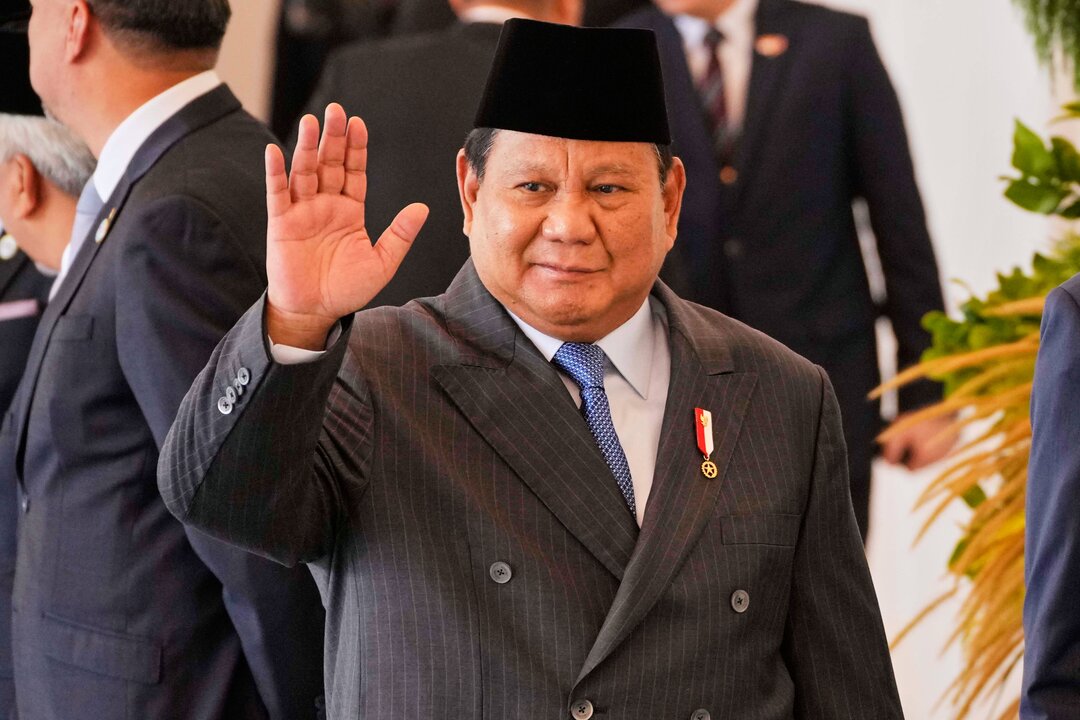
The pardons span a wide range of offenses and are part of a broader campaign to ease tensions and address systemic issues in the country’s overcrowded prison system.
Officials described the move as a symbolic step toward healing and inclusivity during a politically sensitive period.
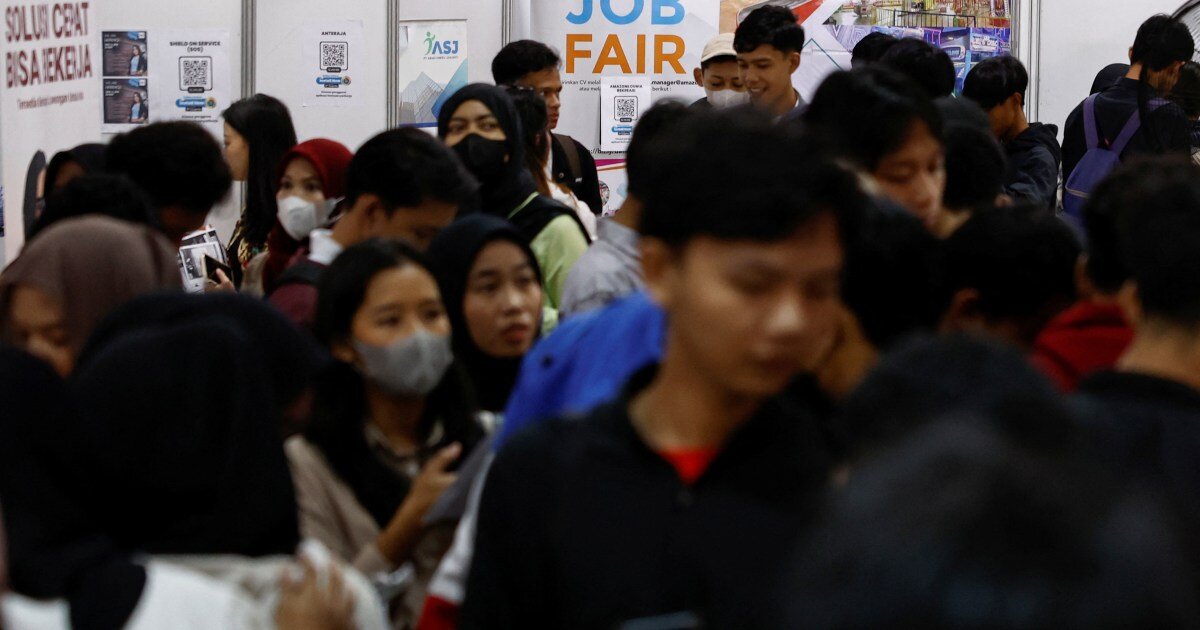
With rising unemployment among young Indonesians and increasing demands for economic reform, officials hope the deal will deliver long-term stability.
However, protests and public frustration continue to signal deeper discontent beyond trade policy alone.

Over 40 flights have been grounded across major airports including Soekarno-Hatta, Juanda, and Gusti Ngurah Rai, disrupting travel to and from Jakarta, Surabaya, Denpasar, Batam, and even regional hubs like Singapore.
Authorities have issued air safety alerts and continue to monitor volcanic activity closely.

The event, to be held in Jakarta, will feature policy forums and exhibitions from numerous countries.
The participation marks a renewed effort by Iran to strengthen health diplomacy in Southeast Asia and build bilateral ties with Indonesia’s expanding medical sector.
Officials in Phnom Penh praised Trump for intervening at a crucial moment and claimed his efforts helped avert further escalation.
The nomination has drawn global attention and mixed reactions from the international community.

The attacks come despite a declared ceasefire and have prompted concerns over the emergence of a parallel digital conflict between the two nations.
Cybersecurity agencies are on high alert as both sides engage in digital retaliation across social platforms and government networks.

Emergency services have been deployed to evacuate high-risk areas and deliver relief supplies.
The government has urged caution as continued rainfall and weak monsoon conditions are expected to exacerbate the situation in the coming days.

The truce comes amid heightened regional concern, with ASEAN observers deployed to inspect conflict-hit areas.
Both nations face mounting pressure to sustain dialogue and avoid further escalation, while foreign diplomats prepare for a security briefing scheduled later this week.
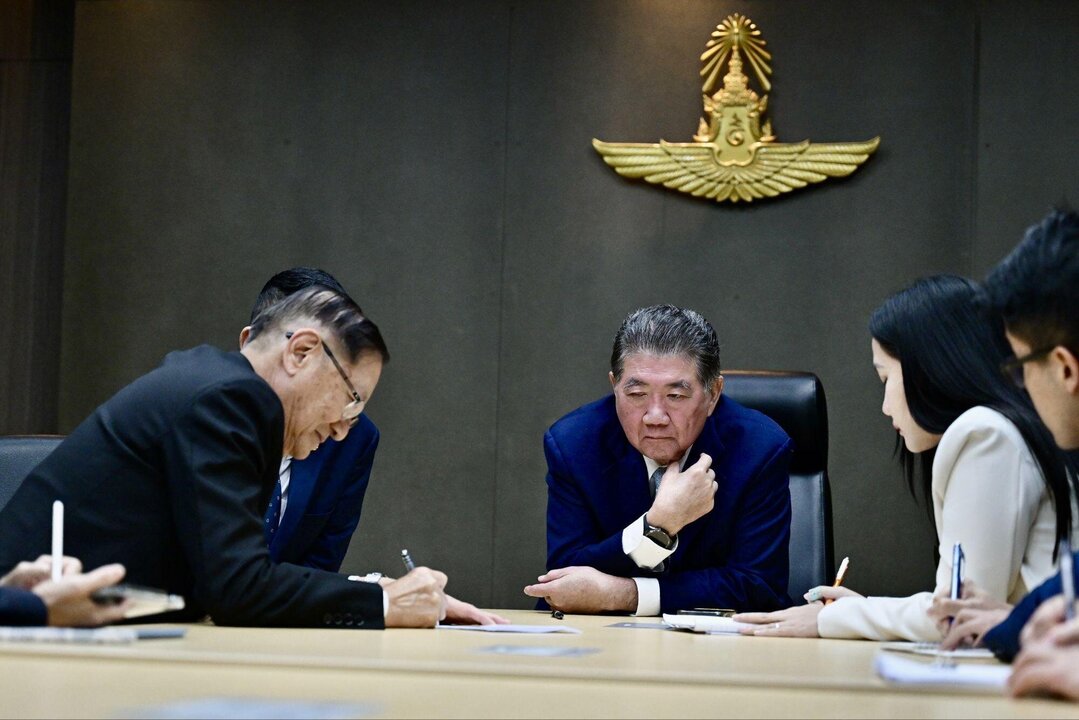
Officials say the agreement caps off seven months of intense negotiations and will provide significant relief to exporters facing global economic headwinds.
The deal is also seen as a strategic win amid rising protectionism worldwide.

Travel advisories, safety concerns, and diplomatic tensions have severely dented traveler confidence just as the country was attempting to revitalize its economy.
Officials say the government is preparing urgent support measures to stabilize the industry.
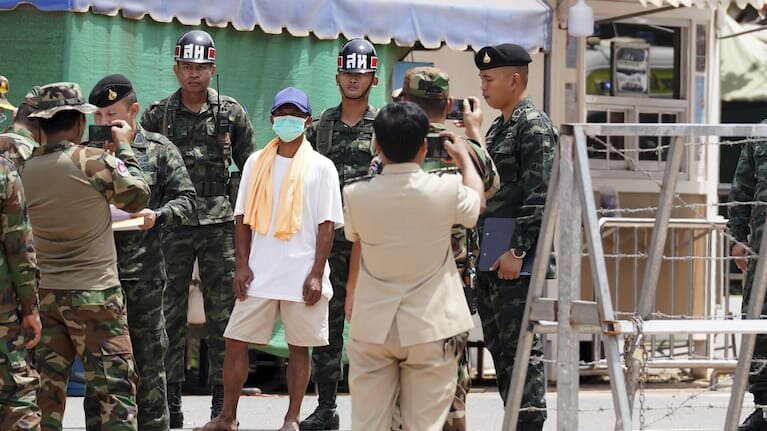
The development follows a deadly five-day conflict that has left over 40 dead and displaced more than 300,000.
Thai officials said the remaining detainees are being held for security assessments, while Cambodia has called for their immediate release and condemned Thailand’s handling of fallen soldiers’ remains.
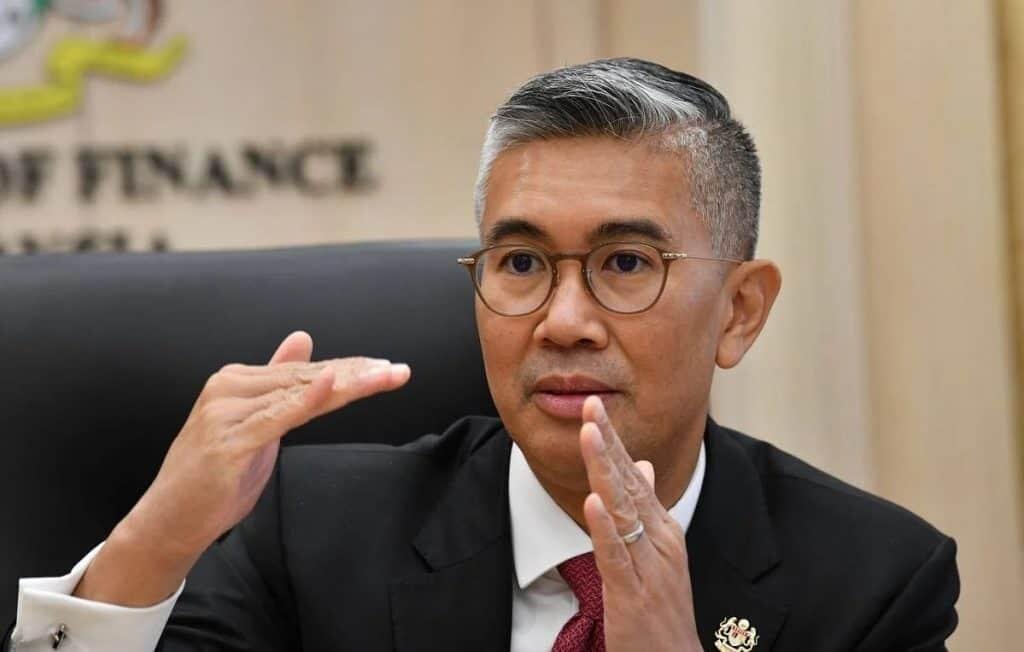
The exemption comes as part of broader trade negotiations aimed at preserving critical supply chains and minimizing economic disruption.
Officials welcomed the decision, noting the strategic importance of both industries to Malaysia’s export economy and global manufacturing networks.

The visit will include bilateral discussions on trade, defense, and cultural cooperation, signaling a potential deepening of ties between Kuala Lumpur and Moscow.
The royal engagement marks the first official audience between the two heads of state and is being closely watched by international observers.
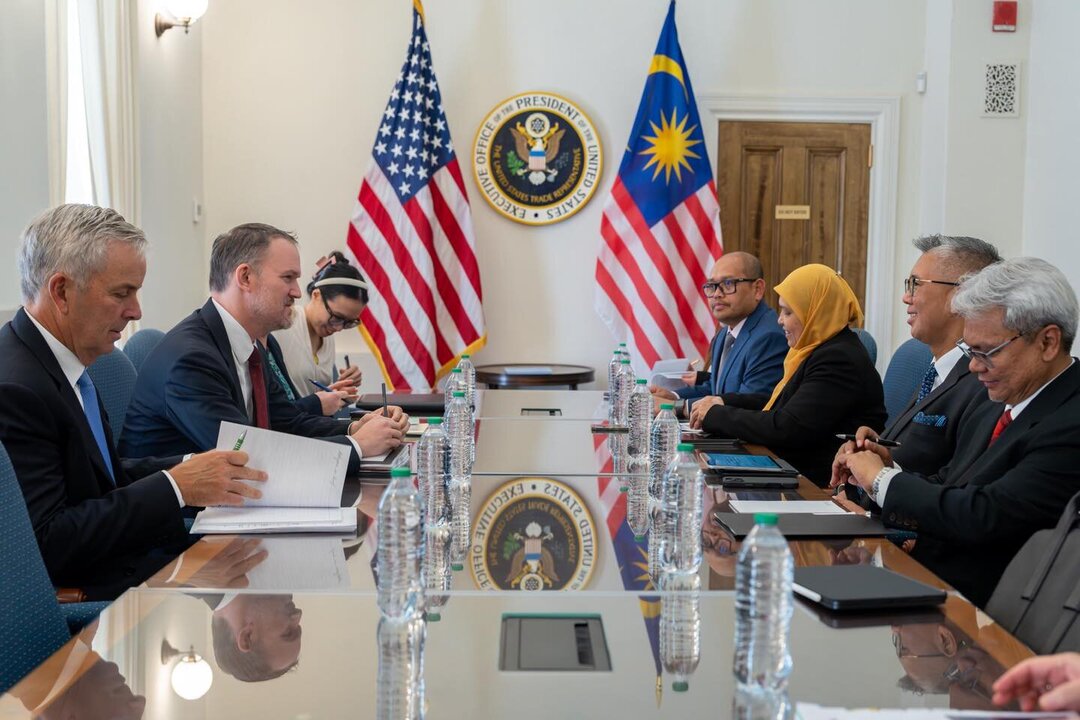
The tariff structure, while excluding certain sectors, is expected to significantly impact small and medium enterprises that rely on integrated global markets.
Economic analysts are urging swift policy responses to cushion potential shocks and preserve competitiveness.
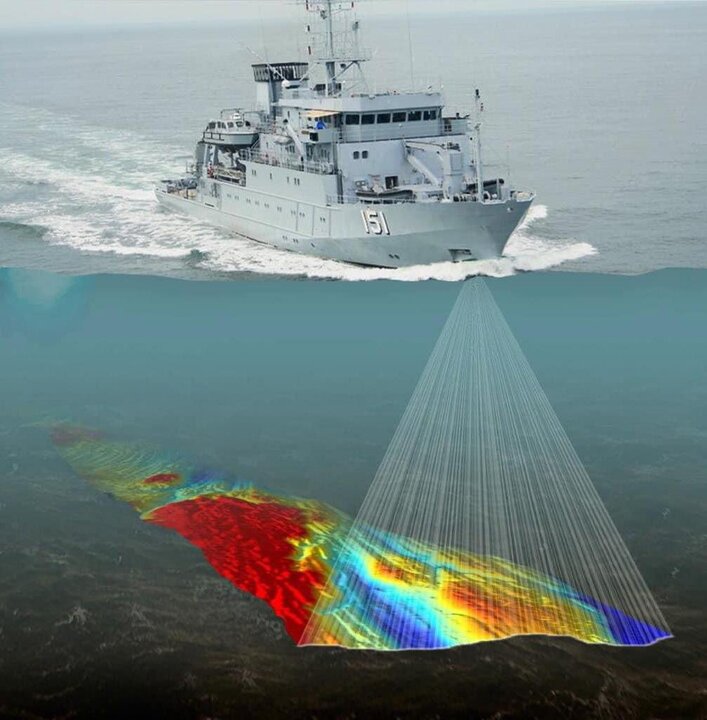
The action follows increasing reports of regulatory breaches by foreign-flagged vessels operating without permits.
Officials say the closure aims to enhance navigational safety and environmental protection while restoring order to one of Southeast Asia’s busiest maritime corridors.
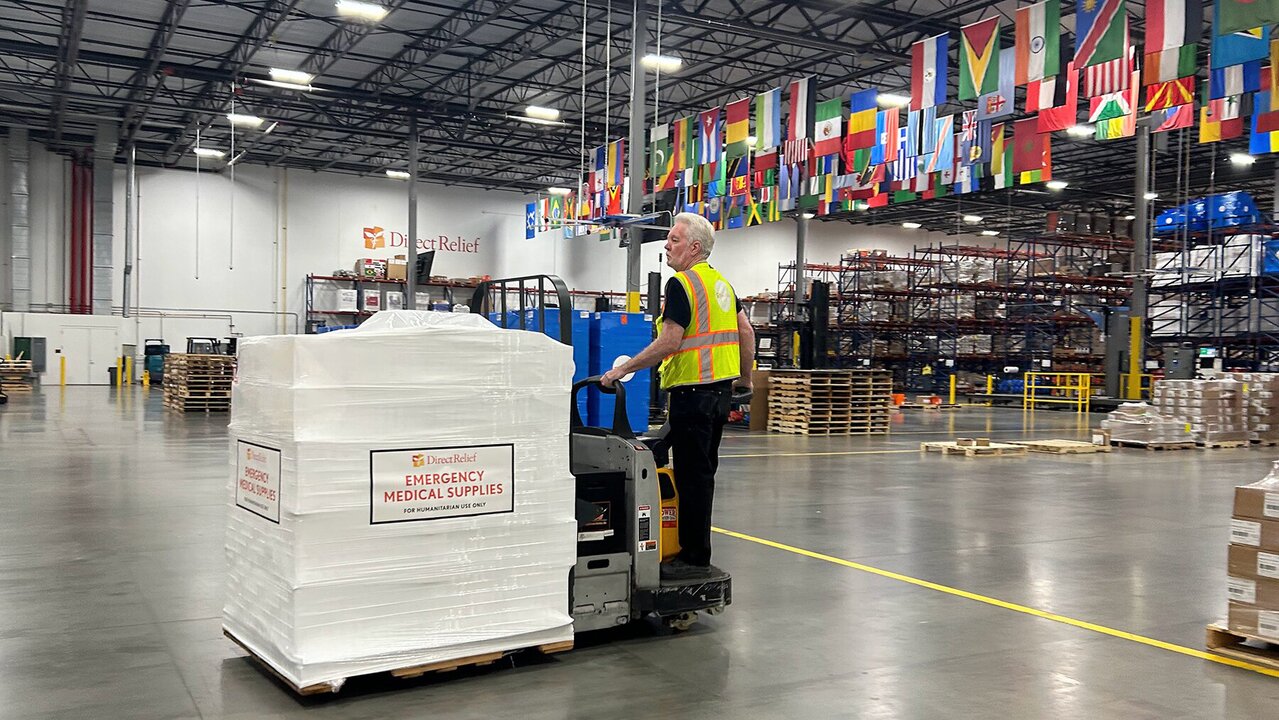
The aid, coordinated by international relief organizations, includes essential medicines, trauma kits, and hygiene products aimed at addressing severe shortages in conflict-affected regions.
Organizers say the supplies are urgently needed to support overstretched clinics and displaced populations.
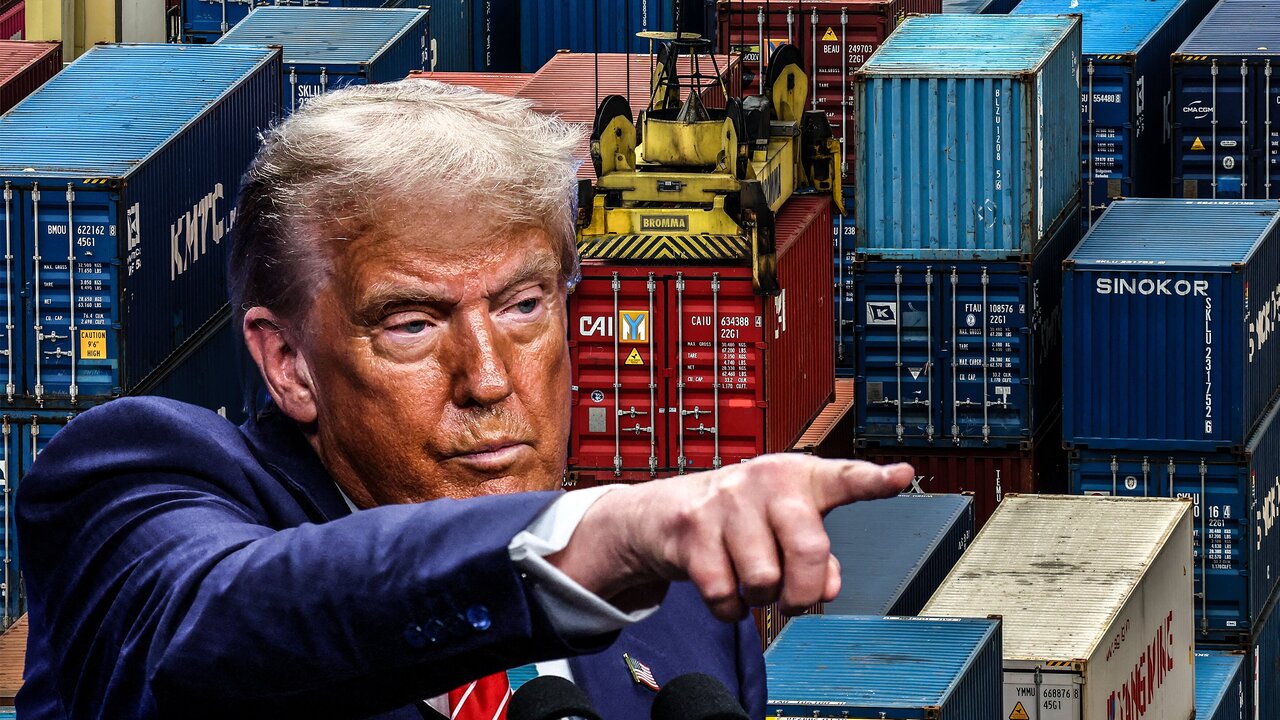
Officials in Naypyidaw said they remain committed to strengthening economic ties and are hopeful that diplomatic engagement will offset the immediate impact of the new tariffs.
Analysts, however, warn that the penalties could strain bilateral relations and hinder Myanmar’s economic recovery.

Despite growing global demand for rare earth elements used in technology and defense, analysts argue that sourcing from Myanmar poses unacceptable risks for sustainable and secure supply chains.
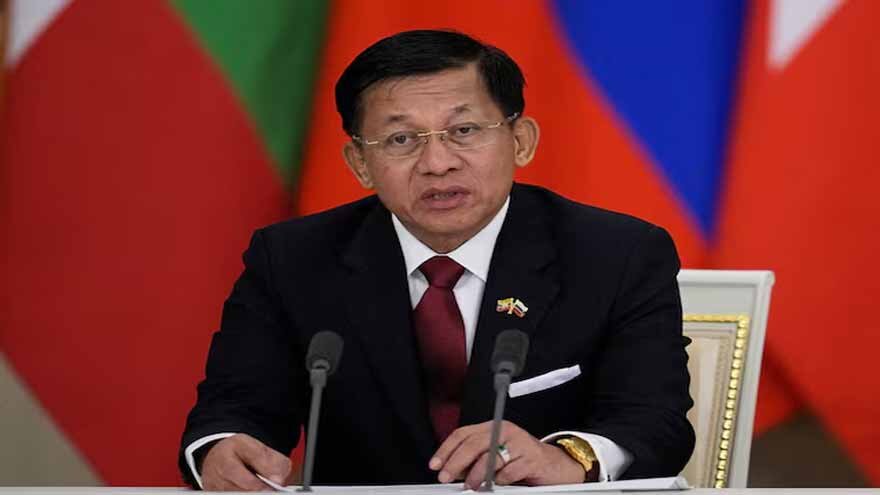
Experts warn that Washington’s apparent pivot to a 'hands-off' approach could embolden the military regime and sap momentum from pro-democracy efforts.
Advocates are urging renewed international engagement to support human rights and civilian governance.

Environmental watchdogs report that lax enforcement and corruption have allowed unregulated gold and rare earth mining to flourish, releasing toxic waste into the waterway.
Residents along the river are increasingly concerned about health risks and long-term ecological damage.

The criticism follows reports of systemic human rights abuses and crackdowns on political dissent, with international observers warning the rollback sends the wrong message at a critical time for Myanmar’s democracy movement.

Speaking at a diplomatic summit, the minister urged Myanmar to end political detentions and allow full participation by civilian leaders.
Japan remains one of the few regional powers engaging directly with Myanmar’s regime while maintaining pressure for reform.
In a surprise escalation in U.S.–Russia relations, President Donald Trump has ordered the deployment of two American nuclear submarines to undisclosed locations following threatening remarks from former Russian President Dmitry Medvedev. The move comes amid rising diplomatic and military friction, tied to a ten-day ultimatum issued by the White House for Russia to agree to a ceasefire in Ukraine or face new sanctions.
A Threat Begets Action
This week, President Trump issued a stark message: Russia has ten days to halt its operations in Ukraine or face severe economic retaliation. In response, Dmitry Medvedev, now Deputy Chair of Russia’s National Security Council, posted a warning that Russia holds nuclear strike capabilities and will not yield to threats. Medvedev accused the U.S. president of pushing dangerous ultimatums and escalating beyond bilateral disputes.
Trump responded on Truth Social, stating he had ordered the deployment of two nuclear submarines “just in case these foolish and inflammatory statements are more than just that.” He added, “Words are very important and can often lead to unintended consequences. I hope this will not be one of those instances.”
Although Trump did not clarify whether the submarines are armed with nuclear warheads, their deployment underscores the serious tone of the standoff. The U.S. maintains over a dozen ballistic missile submarines as part of its nuclear triad—capable of launching warheads from undetectable positions at sea.
Medvedev’s Provocations and Moscow’s Silence
Dmitry Medvedev has long been seen as a hardliner since the full-scale invasion of Ukraine in 2022. Though his current political power is limited compared to President Vladimir Putin, his social media activity has been increasingly belligerent. For over three years, Medvedev has published provocative posts aimed at the West—many of which were previously ignored. But his most recent comments triggered a rare and immediate reaction from a sitting U.S. president.
Despite the gravity of the exchange, official Russian institutions—the Kremlin, the Foreign Ministry, and the Ministry of Defence—have yet to issue any formal response. Local analysts suggest that Moscow is in a state of uncertainty, trying to assess the seriousness of the U.S. submarine deployment and its implications.
The Moscow Stock Exchange reacted immediately, dropping sharply after Trump’s announcement. Russian media has expressed shock at the scale and tone of Trump’s reaction, with one publication suggesting that even Medvedev himself was likely surprised by the U.S. president’s sudden retaliation.
Diplomatic Shadows: The Whitkov Factor
Amid the heightened rhetoric, Trump’s special envoy, Steve Whitkov, is expected to arrive in Russia in the coming days, reportedly to meet with senior officials—possibly even Vladimir Putin. Russian media mocked the envoy’s sudden emergence, comparing him to “a rabbit pulled from a magician’s hat,” with Trump cast as the magician.
Whether Whitkov’s visit can ease tensions remains uncertain. With Washington setting a hard deadline for Russian de-escalation in Ukraine, and Moscow offering little sign of compliance, the mission is being viewed with skepticism in both capitals.
Nuclear Muscle and Strategic Messaging
The exact location of the deployed submarines remains classified. In the past, the U.S. has used the publicized movement of its nuclear submarines as a message—part deterrent, part warning. However, it remains unclear if Trump’s move is a symbolic gesture or a strategic repositioning with tactical implications.
Secretary of State and National Security Advisor aides have attempted to downplay Medvedev’s relevance, stating that he holds no direct decision-making power in Moscow. Yet Trump’s decision to act—rather than merely respond rhetorically—marks a significant departure from previous administrations’ handling of such threats.
Looking Ahead: The Ten-Day Countdown
The clock is now ticking. Trump’s ultimatum expires at the end of next week. If Russia fails to agree to a ceasefire in Ukraine, sweeping sanctions could follow—targeting not only Russia but its major trading partners, including India and China.
Whether this will deter Moscow remains uncertain. Trump himself has publicly expressed doubts, saying he doesn’t believe sanctions will change President Putin’s behavior. The unfolding crisis raises fresh concerns about unintended escalation, especially given the involvement of nuclear-capable platforms.
In Washington, the White House insists this was a necessary move to protect American interests and signal resolve. In Moscow, analysts describe a sense of disbelief, with some suggesting Medvedev’s post was never intended to provoke a direct military response.
The coming days are critical. With submarines in motion, envoys en route, and economic sanctions on standby, the U.S.–Russia relationship enters one of its most volatile chapters in recent memory.
Germany is spiraling into a severe economic breakdown. The industrial engine that once defined Europe’s postwar recovery is faltering under the weight of debt, deindustrialization, and foreign trade warfare. Bankruptcies are climbing, exports are collapsing, and the economy is shrinking for a third consecutive year.
Now, in a move both familiar and ominous, Berlin is redirecting its national strategy away from innovation and economic reform—toward full-blown rearmament and war-preparation. Not for defence. But for aggression. For leverage. For survival.
Collapse, in Numbers and Policy
The 2026 federal budget includes a record one hundred seventy-four billion euros in new borrowing. Public investment is pegged at one hundred twenty-six billion euros. Fiscal restraint is gone. The constitutional “debt brake” once championed by Germany as a pillar of Eurozone stability has been overridden.
Meanwhile, insolvencies surged past twenty-four thousand in 2025, an eleven percent increase over the previous year. The trend is worsening. German industry is crumbling from within—choked by regulation, crushed by foreign tariffs, and unable to adapt.
Mercedes-Benz reported a collapse in profits by over sixty percent in the first half of the year. Thyssenkrupp is slashing over eleven thousand jobs. The chemicals giant BASF is shifting production to China. The auto industry—once untouchable—is being decimated by tariff warfare from the U.S. and outcompeted by Chinese EVs globally.
Germany’s green energy and industrial transition is failing to gain traction. Green steel is too expensive to survive. Even Germany’s own government reportedly avoids buying it—preferring cheaper, dirtier alternatives.
No Innovation, No Flexibility
At the root of the collapse lies a culture-wide failure to innovate. Germany, like much of Europe, is structurally hostile to startups. There is no major tech hub. No venture capital ecosystem of global scale. No tolerance for risk. What dominates instead is a bureaucracy-driven engineering mindset—designed to preserve existing structures, not invent new ones.
High taxes, suffocating regulation, and a fixation on industrial process over creative vision have frozen Germany’s ability to evolve. The future industries—AI, synthetic biology, advanced robotics, clean energy storage—are being invented elsewhere. Germany builds machines. Others build the future.
The American Tariff Trap
Germany’s largest export market—the United States—now imposes fifteen percent tariffs on most EU goods. For German cars, the rate is crushing. Although Mercedes and BMW have U.S.-based production that partially shields them, firms like Audi and Porsche are absorbing direct hits.
Steel exports are now facing fifty percent tariffs. Aluminum isn’t far behind. Pharmaceuticals, long exempt from trade wars, are suddenly under review by the Trump administration. The message from Washington is blunt: pay to play.
But the trade deal Germany was forced into isn’t just economic. It was political. In exchange for avoiding even worse tariffs, Berlin agreed to buy hundreds of billions of dollars' worth of U.S. arms and make vague promises about investing into the American economy. These promises are not enforceable—but they serve their purpose: public humiliation.
A Familiar Pattern: Mobilizing for Aggression
Rather than face the structural truth—economic collapse due to an outdated model—Germany is reverting to an old script. Redirect domestic failure toward external mobilization. Rebuild national unity around weapons, not reforms. Shift from productivity to militarization.
Germany now spends nearly five percent of its GDP on military expansion. It is not defence spending—it is war infrastructure. There is no foreign invasion, no existential military threat. Russia has not crossed a NATO border. But Germany is preparing, posturing, and arming as if war is already underway.
The target isn’t just Moscow. It’s the entire geopolitical landscape—where Berlin seeks to regain leverage, significance, and purpose through force. Just as it has done in the past.
The China Squeeze
While the United States extracts loyalty through tariffs and weapons contracts, China is dismantling Germany’s industrial edge. Chinese electric cars, green steel, solar panels, and digital infrastructure are cheaper, faster, and better backed. Germany cannot compete on price. And without innovation, it cannot compete on value either.
Even rare earth elements—essential to Germany’s machine tools and energy systems—are now weaponized by Beijing. As a result, German manufacturers are experiencing production halts due to component shortages.
China is not mentioned in official documents. But every German official knows: China is the real industrial threat. America is the political dominator. Germany is squeezed between two powers—and has no independent strategy.
Business Loses Its Power
For decades, German foreign policy was shaped by business interests. Today, that model is collapsing. Even the automotive lobby—once able to dictate government decisions—was sidelined during the U.S. tariff negotiations. The result was not total disaster, but it was a signal: industry no longer comes first.
Worse, industry no longer leads. Germany no longer builds the world’s most desired products. It no longer shapes the global marketplace. It is now reactive—subsidizing old sectors, begging for fair treatment, and throwing money at crises rather than creating opportunity.
Reinvention—Or Implosion
There is no comprehensive strategy for reinvention. The move toward militarization is not a forward-looking pivot. It is a desperation move. A bet that weapons production and wartime alignment can fill the vacuum left by failed exports and dead innovation.
What’s missing is a plan. A new industrial identity. A future Germany can build for itself—independent of America’s dictates or China’s pricing.
Some propose new focus areas—like anti-aging tech, high-end pharmaceuticals, or synthetic biology. But without reforming taxation, deregulating innovation, and embracing entrepreneurial culture, those ideas will remain words on paper.
For now, Germany is not solving its crisis. It is militarizing its way through it. Just like it has before.
In remarks made during a television interview on March 14, 2025, he argued that many European countries are “unable or unwilling” to control their borders.
He singled out Germany, stating that if immigration continues from cultures he described as “totally culturally incompatible”, Germany “will have killed itself” while emphasising that he hoped it does not, citing his desire for the country’s continued prosperity .
During the same interview, Vance said Europe has begun to restrict citizens’ rights to protest immigration, framing those restrictions as evidence of a broader retreat from democratic norms.
He called for respect for sovereignty and civil liberties, stating that while he supported Europe as an ally, he believed the United States could not correct these issues on their behalf .
Vance reiterated similar criticisms on February 14, 2025, in a keynote address at the Munich Security Conference, where he described internal threats—such as erosion of free speech—as more dangerous to Europe than external actors like Russia or China.
He referenced recent electoral developments, alleged censorship laws and the exclusion of populist voices from political discourse.
Vance linked the migration crisis and a vehicle attack in Munich to what he framed as deliberate political choices by European leaders .
European officials responded sharply to Vance’s remarks.
Germany’s defence minister described his characterisation of European countries as authoritarian unacceptable, while senior EU officials accused the administration of instigating conflict with longstanding allies.
Concerns were voiced that his remarks aided narratives favourable to far‑right parties, especially in Germany ahead of elections .
Vance’s statements surface amid broader policy debates over migration, integration and the preservation of democratic freedoms across the continent.
He framed Europe’s Christian civilisational roots as foundational, warning that cultural and legal shifts could undermine social cohesion and liberal values.
He reaffirmed that the U.S. remains supportive of European security, while urging European states to assert responsibility over their own borders and civic institutions .
The increase, masked by off‑budget vehicles and special funds, represents a dramatic departure from the constitutional debt brake and the long-standing commitment to fiscal discipline.
The health insurance system is running a €47 billion deficit, with no structural reforms announced.
Instead, government officials confirmed that the shortfall will be covered through additional borrowing and reallocations from special purpose funds.
Germany’s five statutory health insurers, already strained by rising costs and demographic shifts, face insolvency warnings from internal reports issued earlier in 2025.
Social contributions now consume 42.5 percent of gross worker income, yet fail to stabilize the pension, unemployment, and long-term care systems.
The pension fund alone is projected to require €128 billion in federal top-ups by 2026, nearly double its 2018 level.
Despite this, no increase in the retirement age or overhaul of the contribution base is included in the 2026 fiscal framework.
The €520.5 billion spending plan marks a 10 percent increase over 2025 levels, while the structural deficit continues to widen.
Berlin has turned to creative accounting methods, including transferring liabilities to off‑budget infrastructure and energy transition funds, to bypass legal borrowing caps.
These special funds now total more than €900 billion in cumulative debt obligations.
Germany’s debt-to-GDP ratio is expected to rise to 73.8 percent by Q4 2026, up from 64.3 percent in early 2024, reversing years of post-euro crisis consolidation.
Core inflation remains above 3.1 percent, driven in part by public sector wage hikes and energy subsidies embedded in the special fund structure.
Defence spending, shielded from debt brake limits via the €100 billion Bundeswehr fund, will increase to €75 billion in 2026.
Long-term projections suggest a €161.8 billion annual defence budget by 2029, accounting for more than 3.5 percent of GDP.
Labour force participation remains stagnant, with immigration-fueled population growth failing to offset a shrinking native workforce.
The Federal Employment Agency warned in June that job market integration costs for new arrivals had surpassed €11 billion annually.
In its current form, the 2026 budget signals a full reversal of Germany’s past role as the Eurozone’s fiscal disciplinarian.
The same government that once imposed austerity benchmarks on southern European economies now finds itself relying on expanded borrowing, stealth taxation, and unsustainable welfare spending to stay afloat.
The Bundestag is expected to begin formal debate on the budget package in September, with votes scheduled for final adoption before December.
No alternative fiscal framework has been presented.
Do you know what my biggest regret was?
I'm sorry.
I'm sorry.
I invented something that got a billion people addicted, but I never taught you how to quit.
Remember, January 9th, 2007, I said, today, Apple is gonna reinvent the phone.
I was wrong.
We didn't reinvent the phone, we reinvented loneliness.
Today, you unlock your phone 96 times a day, you spend over eight hours looking at your screen, but less than eight minutes looking at your family.
We created a tool to connect seven billion people only to turn each of us into an island.
So today for my first AI presentation since my return, I'm not here to redefine the iPhone 20 or to showcase an iPhone.
I am here to explore with you an ultimate human question.
When AI can do anything, what is left for humans to do?
AI can write a sonnet worthy of Shakespeare, but can it write the love letter you wrote with trembling hands to your first love?
AI can paint the Mona Lisa, but can it paint the sun your child scribbled in their first drawing?
AI can compose a symphony like Beethoven, but can it hum the lullaby your mother sang to you?
It can't, because what we've always wanted isn't perfection.
It's the imperfect, mistake-making, heart-beating, the real you.
Yes, AI is here, and it's 10,000 times more powerful than the iPhone.
So I'm telling you, learn AI.
Use AI.
Master AI.
But remember, AI is here to help you become a better human, not as an excuse to be less of one.
Use AI to save time, then waste that time on the beautiful things in life.
Use AI to increase your efficiency, then be inefficient,
Excuse me.
If I could do it all over again, I would change every later to right now.
I would change every after I'm done with this to let's do this now.
So right now, share this video with someone you love, go find them, look them in the eyes, say the words you've left unsaid,
Give the hug you've always owed them, make the call you've been meaning to make.
Because AI can bring me back to life, but it can't bring back the I'm sorry you missed the chance to say.
AI can copy my thoughts, but it can't copy the I love you you missed the chance to share.
AI can recreate my image, but it can't recreate the hug you missed the chance to give.
Do you know what death taught me?
That there's always tomorrow really means there is no tomorrow.
That we'll talk next time really means we'll never talk.
And that some other day really means that day will never come.
One more thing, I'm back in an AI form to witness this great new era with all of you.
And so in every future presentation, more people who change the world will join us.
I hope that each of our conversations can help you or give you a little inspiration for your future.
This is the meaning of my return.
Who do you want to see?
I will always be here with you.
See you next time.
For those who love life and live in the now.
IEAT officials, South Korean counterparts and representatives from the Thai Industrial Estate and Strategic Partner Association are evaluating the proposal.
The EEC, which spans Chon Buri, Rayong and Chachoengsao provinces, is a central area for Thailand’s high‑tech ambitions across twelve strategic ‘S‑curve’ industries including smart electronics and next‑generation automotive manufacturing.
IEAT operates over sixty industrial estates nationwide, including the Map Ta Phut industrial estate in Rayong.
In 2024, trade between Thailand and South Korea amounted to between US 14.7 and US 15.0 billion, with Thai exports to South Korea recorded at approximately US six billion and imports at around US eight to nine billion.
South Korea ranks among Thailand’s top fifteen trading partners.
Between January and March 2025, South Korean firms submitted seven investment proposals worth around 1.2 billion baht to Thailand’s Board of Investment, covering sectors such as electrical goods, machinery, automotive and components.
From 2020 to 2024, Korean companies proposed 141 investment projects valued at 63 billion baht under incentive schemes.
Previous engagements have included an investment roadshow in South Korea targeting industries such as electric vehicles, digital technology, renewables, bioscience and pharmaceuticals.
The IEAT has also secured commitments exceeding US 500 million from South Korean investors to develop its Smart Park industrial estate in Rayong, with interest in renewable energy, electric vehicle production and medical device sectors.
Thailand and South Korea have commenced formal negotiations toward an Economic Partnership Agreement encompassing trade in goods and services, digital economy collaboration and government procurement principles.
She maintains that current intelligence actors are colluding with media organisations to undermine President Trump’s administration policies.
Gabbard stated that some members of the intelligence community believe their own agenda supersedes that of the American people, and that leaks to left‑wing media are weaponised to attack President Trump’s agenda.
She intends to release further documentation supporting her claims and has referred the matter to the Department of Justice.
The original Operation Mockingbird, investigated and declassified through Congressional inquiries and FOIA releases in the 1970s, involved covert CIA engagement with journalists and media organisations, founding relationships that placed agency perspectives into domestic and international news coverage.
These operations included recruiting journalists and placing narratives designed to reflect US intelligence interests.
Gabbard’s assertions follow the mid‑July declassification of a 44‑page House Intelligence Committee report that challenges the credibility of the 2017 intelligence assessment on Russian interference in the 2016 US presidential election.
The report questions the reliability of certain sources, criticises former CIA Director John Brennan’s inclusion of contested assessments regarding Putin’s preference for Trump, and alleges intelligence manipulation under the Obama administration.
Gabbard described the situation as indicative of a “treasonous conspiracy”.
Former CIA counter‑intelligence chief Susan Miller, who led the 2016 Russia interference assessment, directly rebutted Gabbard’s claims.
Miller stated that the intelligence conclusions were based on credible sources, that no falsification occurred, and that the Steele dossier was not foundational to the report but appended under FBI pressure.
She denied any political manipulation and stated that Russian interference was limited to media and cyber campaigns, not tampering with voting machines.
The dispute has drawn responses across political lines.
Republican Senator Lindsey Graham endorsed Gabbard’s demand for a special counsel investigation, rejecting calls for former President Obama’s prosecution but supporting inquiry into whether intelligence assessments were altered due to political motives.
MSNBC host Kristen Welker and others challenged Graham’s assertion by citing the 2023 findings of Special Counsel John Durham, which concluded there was no political interference in the Russiagate probe, as well as the bipartisan 2020 Senate Intelligence Committee report affirming Russian interference.
Attorney General Pam Bondi has formed a task force to investigate the newly declassified intelligence, focusing on allegations of improper source reliance, flawed use of the Steele dossier, and potential deliberate misdirection in the narrative of Russian interference favouring Trump.
The task force aims to examine whether political objectives shaped the intelligence assessment.
The measures, authorized by executive order, include tariff hikes ranging from fifteen to fifty percent and mark one of the most extensive overhauls of U.S. trade policy in recent decades.
Canada will face a thirty-five percent tariff, up from the previous twenty-five percent rate, while the United Kingdom retains a baseline tariff of ten percent.
The European Union, Japan, and South Korea are all set to face a uniform tariff rate of fifteen percent, as part of recent bilateral arrangements.
Mexico, the United States' largest trading partner, received a ninety-day extension on its current tariff rates following direct negotiations between U.S. and Mexican officials.
Imports from Mexico will still be subject to duties on metals and automobiles.
Brazil will be subject to a fifty percent tariff on many goods, although key U.S. imports such as orange juice and aircraft parts are exempt.
An estimated 35.9 percent of Brazil’s exports to the U.S. will fall under the new highest tariff tier.
India is slated to face a twenty-five percent tariff after trade talks stalled, with additional penalties linked to its energy trade with Russia.
Taiwan will be subject to a twenty percent rate, while Switzerland faces a thirty-nine percent tariff, affecting sectors including watches and pharmaceuticals.
Bangladesh secured a reduction in its apparel export tariff to twenty percent, down from an initially proposed thirty-seven percent.
This aligns its rate with other major garment exporters such as Vietnam, Pakistan, Sri Lanka, and Indonesia.
The U.S. also signed agreements with Thailand and Cambodia, following their ceasefire agreement earlier in the week.
Both countries were originally facing a thirty-six percent tariff before the new deals.
On materials, President Trump imposed a fifty percent tariff on semi-finished copper products including pipes, wires, and rods, while exempting raw forms such as ore and cathodes.
This move led to a sharp drop in copper futures traded in New York.
A new order also ends the de minimis exemption for low-value imports under eight hundred dollars, with tariffs now applicable from August 29.
The move affects a wide range of e-commerce shipments.
In addition to the tariffs, the U.S. reached a new trade deal with South Korea.
The agreement includes a fifteen percent tariff on South Korean imports and a pledge from Seoul to invest three hundred and fifty billion dollars in U.S. energy and shipbuilding sectors.
President Trump has also confirmed a trade agreement with Pakistan that allows U.S. companies to develop Pakistan’s oil reserves.
In exchange, Pakistan will receive reduced tariffs on its exports to the U.S., although specific terms have not been disclosed.
The White House stated that over seventy countries are affected by the updated reciprocal tariff framework.
Many countries with which the U.S. runs a trade surplus were excluded from this round of increases, maintaining the ten percent baseline rate.
The new tariff takes effect immediately and brings Thailand in line with regional economies such as Indonesia and Malaysia, which also secured a nineteen percent rate, and Vietnam at twenty percent.
Thailand’s Deputy Prime Minister and Finance Minister, Pichai Chunhavajira, confirmed that the agreement was reached ahead of the August 1 deadline after rapid negotiations in recent weeks, during which Thailand submitted revised proposals and concessions on product access and trade balances.
Thai officials viewed the outcome as matching regional tariff parity.
Before the deal, the U.S. had imposed a baseline ten percent tariff for all trading partners, escalating to higher reciprocal tariffs for nations with trade surpluses.
Thailand, previously classified among countries facing steep duties, was scheduled for a thirty‑six percent rate effective August 1.
Thailand’s exports to the U.S. accounted for approximately eighteen point three percent of its total exports in 2024, valued near fifty‑five billion dollars.
Major export categories include electronics, rubber, and machinery; imports from the U.S. comprise crude oil, machinery parts, and chemicals.
The government also announced support measures—such as soft loans, subsidies, tax incentives, and regulatory reforms—to assist affected sectors in adjusting to the revised tariff regime.
The new rate follows U.S. Executive Orders outlining reciprocal tariffs, and reflects similar rates agreed by other Southeast Asian nations amid broader adjustments in global trade policies.
Meanwhile, Thailand’s economy has seen export growth accelerate year‑to‑date, prompting a slight upward revision of its full‑year GDP forecast to 2 point two percent, up from 2 point one percent.
Negotiations involved both public‑ and private‑sector representatives, with Thai negotiators submitting revised offers via video conference and in‑person exchanges.
The agreement was formally confirmed by U.S. authorities immediately before the deadline, after Thai proposals were described as comprehensive and responsive to U.S. requests.
The reciprocal tariff reduction applies to all goods with less than twenty percent U.S.‑origin content, under current U.S. policy frameworks.
On July 31, Cambodian Defence Minister General Tea Seiha formally invited General Nattaphon Narkphanit, Thailand’s Deputy Defence Minister, to attend the GBC meeting in Phnom Penh. However, General Nattaphon responded by proposing that the venue be moved to Malaysia—a neutral location—while suggesting revised dates of August 4–7, to which Cambodia has now officially consented.
As part of efforts to ensure transparency and reinforce mediation, General Tea Seiha has also invited Malaysia, the United States, and China to participate as official observers of the GBC talks. These three nations were acknowledged for their pivotal roles in facilitating the ceasefire discussions earlier in July.
“We sincerely hope that this meeting will be constructive and yield positive results,” stated Lieutenant General Maly Socheata, spokesperson for Cambodia’s Ministry of Defence.
Status of Detained Soldiers and Humanitarian Coordination
Lieutenant General Maly also addressed the situation involving 20 Cambodian soldiers currently detained by Thai authorities, stating that Thailand has confirmed the detainees are in good condition. Cambodia is actively engaged in negotiations for their immediate repatriation, in accordance with international humanitarian law. As the current ASEAN Chair, Malaysia has been requested to assist in mediating and expediting the release and safe return of the soldiers.

The two‑day event runs daily from 10 a.m. to 4 p.m., and includes a special “Vietnam War Remembered” lantern tour of Boalsburg Cemetery on the evening of August 2.
Organizers say the programming aims to foster cultural understanding, highlight Cold War impacts and provide younger audiences with meaningful encounters through interactive tents, veteran storytelling and hands‑on activities designed to bring history to life.

Hosted at the Score Park complex, the exhibit includes a mobile Education Center, daily TAPS ceremonies at sundown and guided tours led by volunteer veterans.
Nevada will be Iowa’s only stop in the 2025 national tour, organizers say, hoping the installation fosters community reflection, remembrance and reconciliation for all who visit.

Brazil and Colombia together account for over 50 percent of U.S. coffee imports, while Vietnam and others each supply roughly 5 percent.
Analysts predict that increased duties could disrupt global sourcing, promote logistics delays, and shrink margins for domestic roasters.
With climate disruption already tightening supply, the combined pressure may prompt retailers to raise prices, renegotiate contracts, or explore alternative origins to mitigate cost spikes.

The team used the AutoGuide™ robotic system for SEEG implantation, allowing for precise electrode placement and minimally invasive monitoring to localize seizure onset zones.
Officials say the surgery laid the groundwork for expanded use of robotic assistance in treating complex neurological conditions and signals Vietnam’s advancing medical capabilities.
The young patient’s recovery is said to be progressing without complications, offering hope for broader access to advanced surgical tools for vulnerable patients across the region.

The veteran described returning amid hostility and protest, then watching a gradual erasure of public memory and appreciation for those who served.
He and other local veterans have said that even a simple “thank you” now carries weight, and that sharing their stories offers healing and an important counter to historical amnesia.
From biennial reunions to public exhibits, they are also advocating for educational programs that preserve the sacrifices and identities of their generation.

The bridge, numbered 264, spans a stream on North 9th Street near his hometown and serves as the 16th memorial bridge in Bucks County’s ongoing Vietnam Veterans Memorial Bridge Program.
Family members, including his daughter and sister, attended the ceremony, which also acknowledged a long‑delayed repatriation and recovery effort completed in 2000.
The memorial effort pays tribute to the 136 Bucks County residents who lost their lives in Vietnam and is led in partnership with local advocates and the Pennsylvania Vietnam Veterans Memorial Fund.
In dedicating a public span, county officials aim to ensure that Major Parker’s sacrifice and legacy remain a visible part of the community he hailed from.